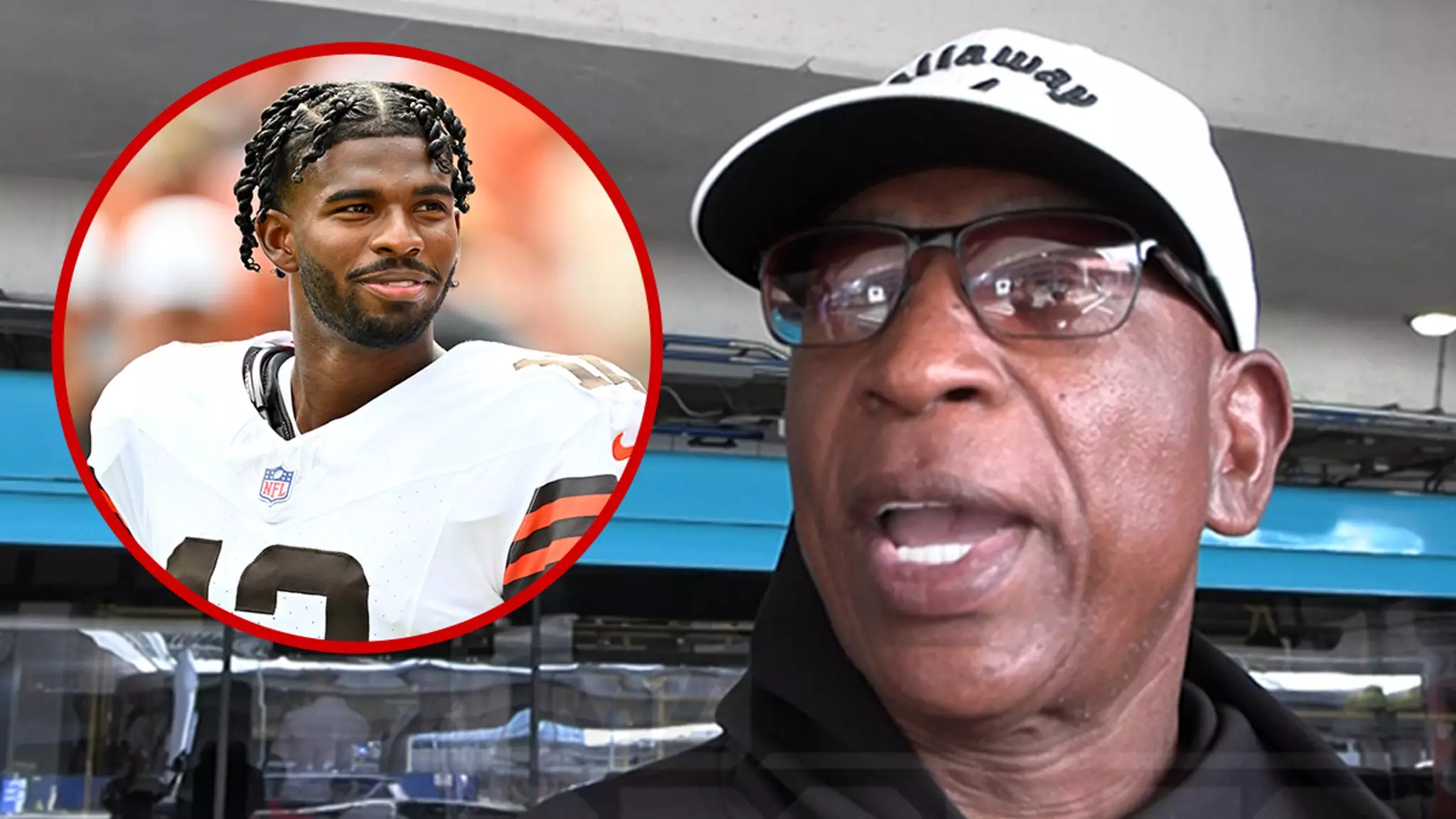Eric Dickerson’s recent comments about the Cleveland Browns reveal much more than just a personal bias; they expose a broader frustration with how certain NFL franchises handle talent and player growth. His blunt assessment of the Browns as a “horrible” team underscores a deep-rooted dissatisfaction that likely stems from years of witnessing mismanagement and underachievement. While fan loyalty often entails unwavering allegiance, Dickerson’s candor suggests a more critical view—one that questions whether some franchises genuinely prioritize player development or simply serve as placeholders for organizational dysfunction. His specific outrage over Shedeur Sanders’ placement indicates a belief that talent is often sacrificed on the altar of poor organizational culture.
The suggestion that Shedeur was mishandled by the Browns points to a bigger issue: the perceived disconnect between NFL teams’ strategic goals and the aspirations of young players and their advocates. Dickerson’s hope that Sanders will be let go, or at least have a chance elsewhere, hints at an underlying belief that player futures are often dictated by organizational agendas rather than merit. It raises a critical question: how often do NFL teams truly prioritize talent over politics? Dickerson evidently thinks that the answer is often no, especially with teams like Cleveland, whose reputation for quarterback issues and instability fuels such speculation.
Controversial Insights and Industry Skepticism
What makes Dickerson’s critique particularly compelling — and controversial — is his claim about NFL interference during the draft process. By asserting that “the NFL ordered its teams not to draft Shedeur,” he ventures into the realm of conspiracy theories, which, while unsubstantiated publicly, reflect a widespread skepticism about league influence in team decisions. His reference to a “guy who works for the NFL” as his source complicates the narrative, raising questions about the transparency and integrity of draft proceedings. While such allegations are difficult to verify, they resonate with fans and analysts who have long suspected behind-the-scenes manipulations that favor certain players or hinder others.
Moreover, Dickerson’s dismissal of Shedeur’s own reasons for not joining the Ravens reveals a nuanced understanding of the NFL’s internal negotiations. His call that the story about Shedeur not wanting to sit behind Lamar Jackson is “B.S.” hints at a deeper belief that players, especially young prospects, are often misunderstood or misrepresented during draft battles. This skepticism toward official narratives underscores a broader mistrust of league communications and signals a desire for more honest, player-centric discourse.
Reevaluating NFL Power Dynamics and Future Possibilities
In his broader commentary on NFL teams like the Rams, Saquon Barkley, and Derrick Henry, Dickerson injects his personal insight into current league dynamics, emphasizing that talent alone isn’t always enough for success. His outspoken stance on whether teams are fair or strategic in their approach criticizes the league’s focus on wins over player development. His critique becomes a provocative call for teams to reconsider their long-term outlooks — whether they’re risking losing talented players by mishandling their careers or missing out on potential franchise cornerstones.
Importantly, Dickerson’s passionate advocacy for Shedeur Sanders signals a perspective that players deserve more than just a spot on a team—they deserve fair opportunities based on ability and potential. Whether one agrees with all his claims or not, his outspoken nature encourages fans and industry insiders to scrutinize organizational motives more critically. His critique is not just personal; it’s a challenge to the status quo. It implores teams and the league to reflect on how talent is valued, nurtured, and ultimately judged in this complex ecosystem of professional football.

Leave a Reply